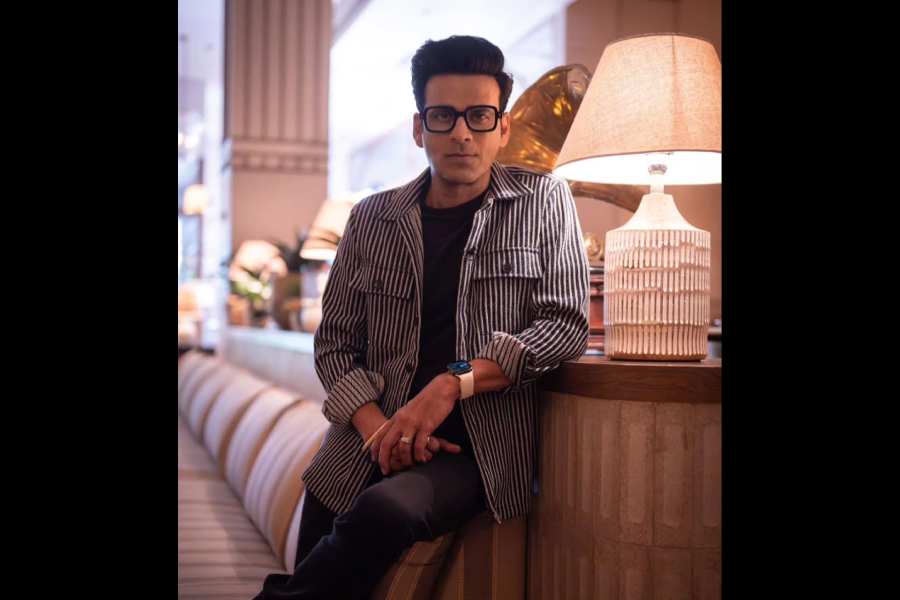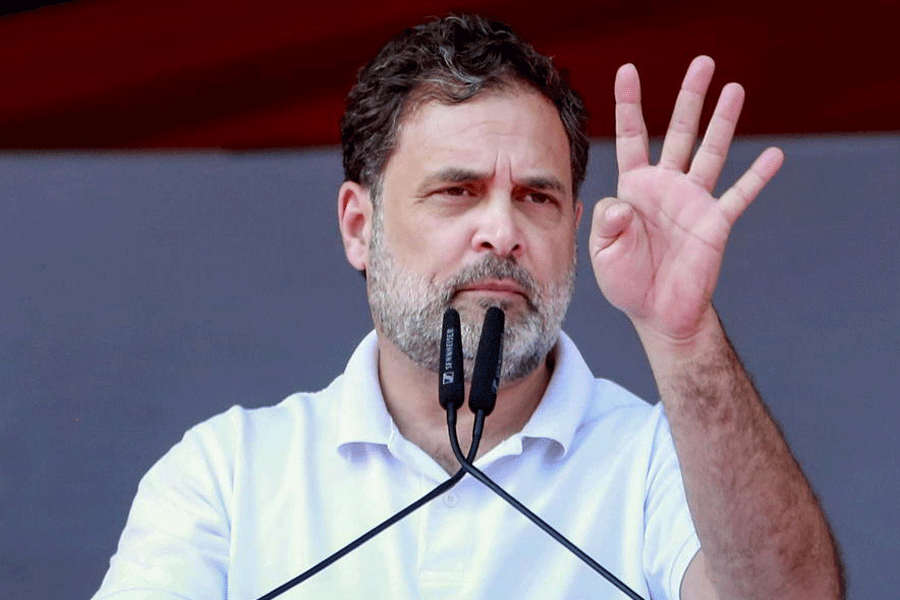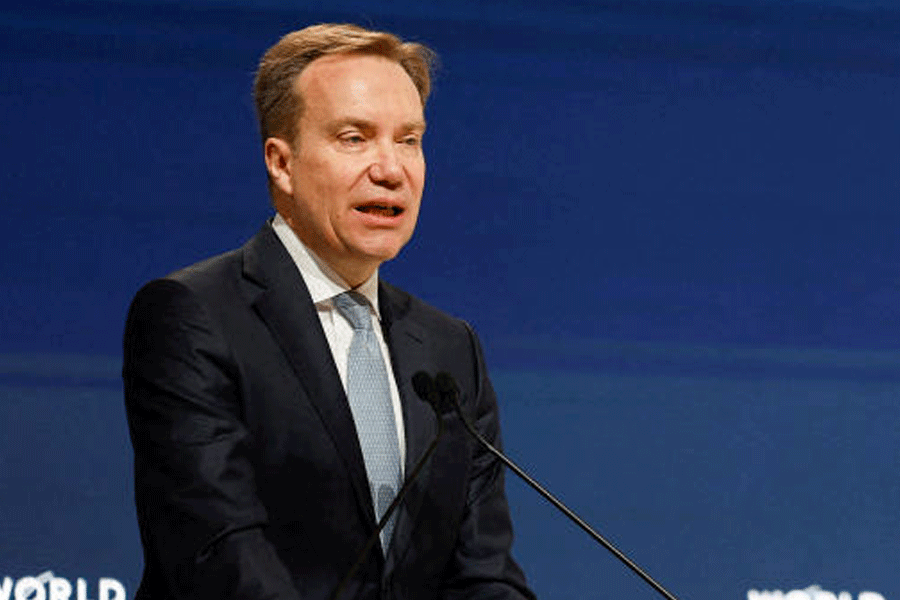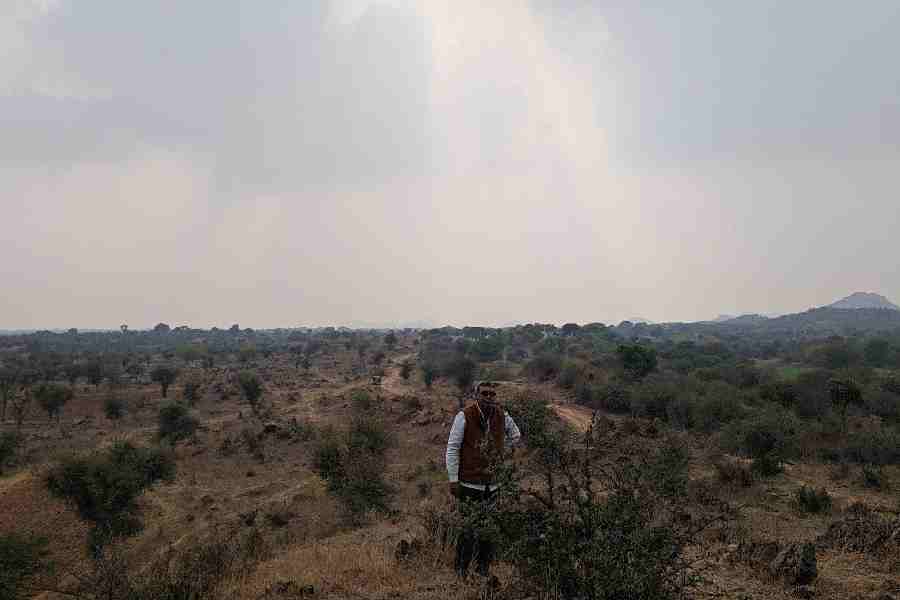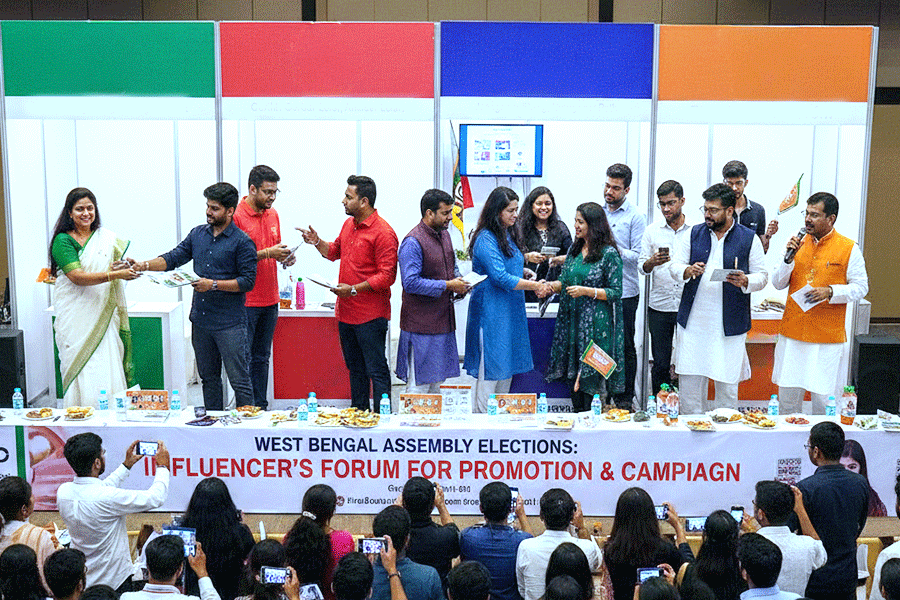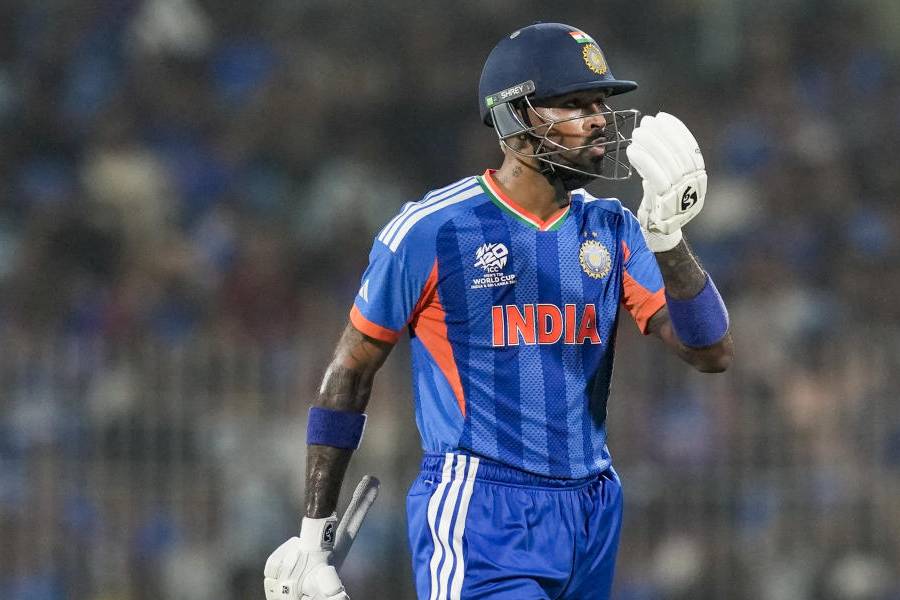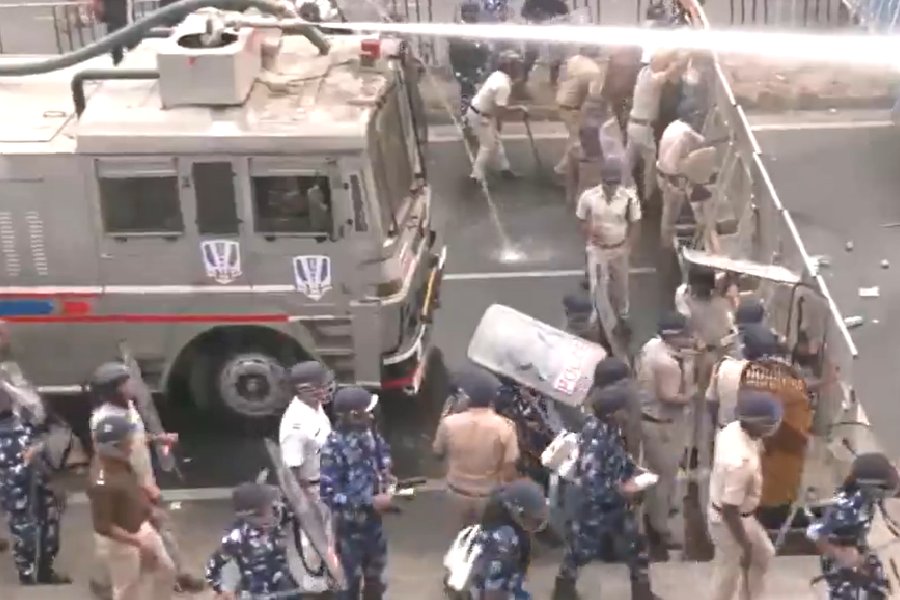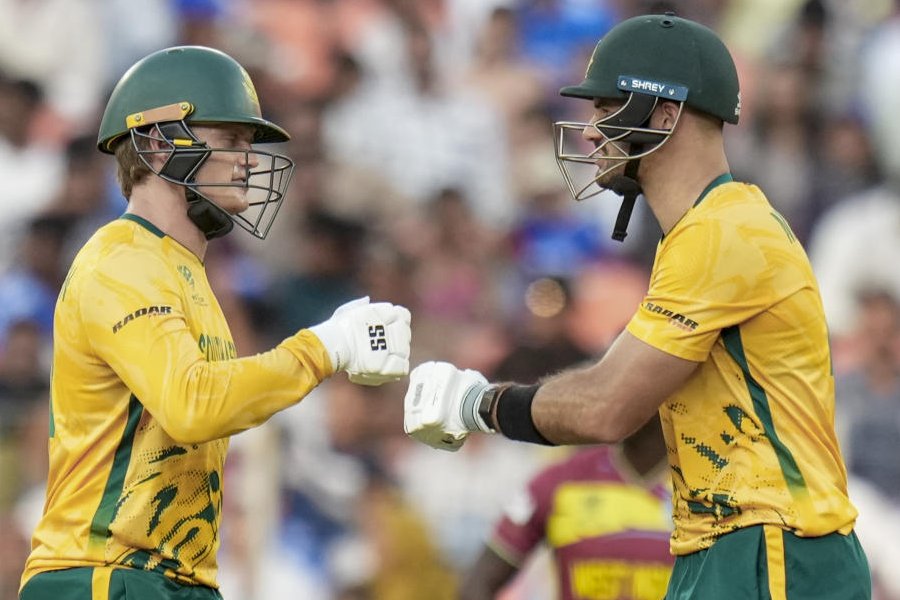The ever-chameleonic Manoj Bajpayee delivers yet another magical performance in Inspector Zende. Released on Netflix last weekend, Inspector Zende has Bajpayee playing the titular role of the real-life cop who captured notorious criminal and con man Charles Sobhraj (Jim Sarbh plays the character, called Carl Bhojraj in this film) twice in his career.
Besides Bajpayee’s scintillating performance, that is also supported by a strong ensemble cast, what makes Inspector Zende delightful is the semi-comic tone the narrative adopts, which is a rarity in this genre. t2 chatted with Bajpayee a few days after the film’s release to know more.
It has been about four days since the release of Inspector Zende. How would you describe the response so far?
The messages from people who matter and whose opinions hold weightage for me have been overwhelming. As an actor, I like having conversations about my films with those who have an understanding of cinema and who can go into deeper detail. One of them is my wife (Shabana) and the others are all actors or directors here in Mumbai.
Even otherwise, the response from the audience has been massive. Even the people who are generally quite difficult to please seem to have enjoyed Inspector Zende to the hilt. All in all, the film is going strong.
Are they singling out any particular aspect of the film or of your performance?
Everyone’s common interest is the family and the chemistry between the husband and wife (Zende and Vijaya, played by Girija Oak). Also, people are liking all the team members (assigned to nab Carl Bhojraj, played by Jim Sarbh) and their brilliant performances and what happens in Goa with them.
But mostly, people are talking about the chemistry between Girija and me. In fact, many have asked me for how many years I have known her. The truth is that we didn’t know each other at all before this film.
That is the job. That shows that Girija is a very professional actor and we got together to bring alive that chemistry on screen. We were also guided by our very capable director Chinmay Mandlekar, who is also a well-known actor in Marathi cinema and theatre. He was there to protect us if anything went wrong. The film was a big learning experience for me.
The USP of Inspector Zende lies in the humorous approach it takes in a cop-vs-criminal genre, which is otherwise almost always treated with seriousness. Was that one of the major factors that appealed to you when you were offered the film?
First of all, it is a great script. I read it twice and I was laughing all the time. This is a film about a world-famous serial killer who is wanted globally. Against him, there are a few rookie cops — headed by Zende — who are struggling for basic things... like money, resources, clothes, food, weapons... and yet they have the spirit to go on.
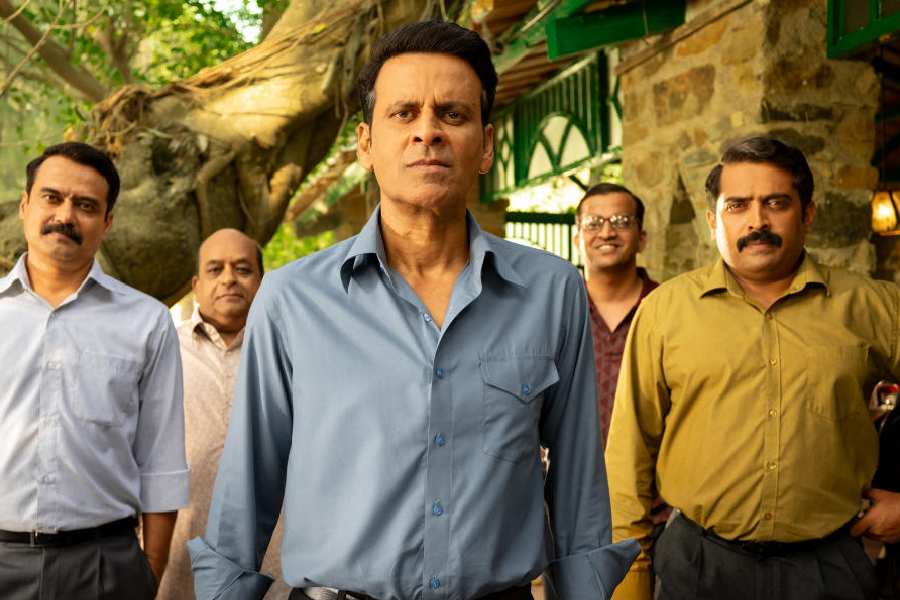
A moment from Inspector Zende, now streaming on Netflix
What was your first reaction when you first heard about the remarkable story of Inspector Zende?
Honestly, I was quite embarrassed that I hadn’t heard about him before. He is a gentleman who has been celebrated quite a bit in Maharashtra, but the rest of the country doesn’t know much about him, if at all. To have the courage and the presence of mind to catch Charles Sobhraj not once but twice in his career is remarkable. But because of the glamour which is associated with Charles Sobhraj, who became such a larger-than-life figure, no one really paid much attention to the man who caught him twice, or the team, in fact, that worked tirelessly to help Zende in the mission.
What did you have to do to slip into this character? Was there any special prep involved?
The director didn’t want me to meet Madhukar Zende before I started shooting. In doing so, he left me with a lot of freedom to have my own interpretation of the character. Mr Zende is 88 now, and the director felt that since I was playing the younger version of him, I wouldn’t gain much by meeting him. So from talking to Chinmay — who is also the writer of the film — to reading quite a bit on Zende, I sort of worked out my own interpretation of the character. It took us 20-25 days to arrive at how I would play him, what the tone and the mannerisms would be.
But prep is one thing... when you actually shoot, there is so much of it that goes away, but in that process, so many new things come in that you then start absorbing as an actor. My process on each and every day of this shoot was to try and find the truth of Zende, and that was a beautiful journey.
Your humour always hits home, but we haven’t seen much of it on screen. Do comedy films not interest you? I read somewhere that you are wary of doing slapstick, physical comedy...
If there is a great script, why not? But honestly, what is predominantly being made now in the genre doesn’t interest me. For me, comedy is Charlie Chaplin, Laurel and Hardy or, for that matter, even Jim Carrey. The kind which may be physical comedy, but which also moves beyond the boundaries of the genre to say and mean much more.
Most actors across the world say that comedy is the toughest genre to pull off. Would you agree?
I completely agree that Jaane Bhi Do Yaaro was a difficult film to make, but so was Ardh Satya. Making any film, no matter what genre it is, is tough. For that matter, any kind of creative endeavour is very difficult. But yes I agree that if you fail to pull off a comedy, everything falls apart like a pack of cards.
Standing where you are today, three decades and scores of memorable roles and watershed films later, what does Manoj Bajpayee want to do as an actor in the next few years?
Three decades in the film industry and 10 years of doing theatre before that has taught me one thing — one doesn’t make a great film, it just happens. Everyone does their job to the best of their ability, it is about achieving a common goal. And while we all hope that every film has an impact, some of them go on to become a little more special than the rest.
As artistes, all we can do is remain honest and truthful to what we are doing on a particular day. Like I am shooting today, and every shot that I do matters to me. That is the attitude I go in with, and sometimes magic happens. And then some films are simply grabbed and embraced by the audience as their own and showered with so much warmth that it sometimes surprises even us.
When we make a good film, we know that we are on to something. Take a film like Satya (1998). We knew that we were making a good film, but at that time, we had no idea that it would go down in history as a film that would connect with generations of audiences and, in many ways, change the course of films and filmmaking. All we did was remain in the moment of truth while making the film and that is all I want to do going forward.
You have another film — Jugnuma — releasing this Friday in theatres. It looks very different from anything that we have seen in the recent past...
It is an absolutely magical film. You have to watch it to know what I am talking about. It is one of those films that has become very close to my heart.
My favourite Manoj Bajpayee role as a cop/ investigator is...Tell t2@abp.in

